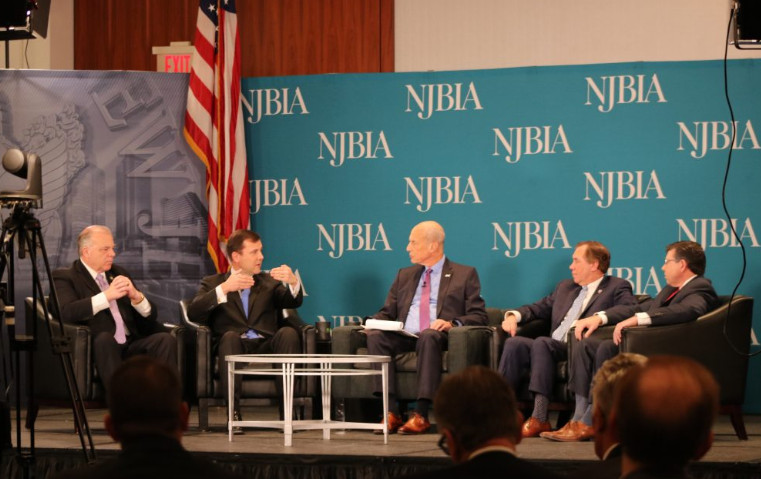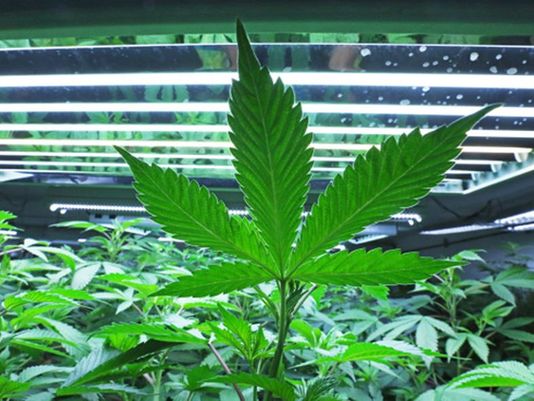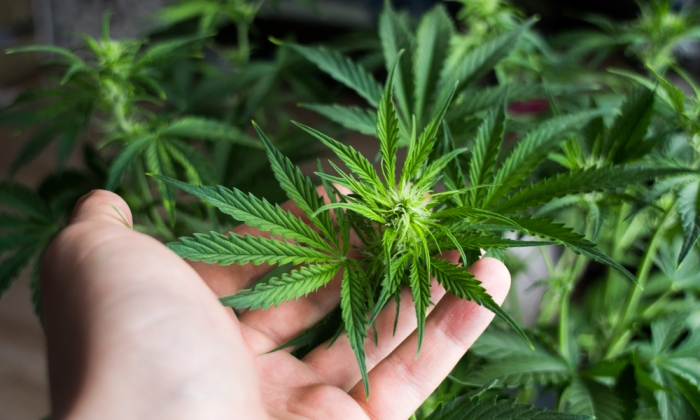TRENTON — Long-promised legislation that would legalize, regulate and tax the use of marijuana for recreational purposes in New Jersey is being unveiled Monday, with an eye toward approving it next year.
The bill probably won’t be passed until next year because Gov. Chris Christie is a vehement opponent. But Christie will be leaving office in January, when his second term ends, so the prospects for the bill’s passage depend on which candidate is elected governor in November.
All six Democrats on the primary ballot say they support legalization.
“I can say affirmatively that by 2018, we will have legalized marijuana in the state of New Jersey,” said Sen. Raymond Lesniak, D-Union, who was long reluctant to support the idea, until recently.
There’s more of a range of viewpoints among the five Republicans. Two of the longshot candidates, Joseph Rullo and Hirsh Singh, back legalization, while another, Steve Rogers, opposes it. The two with the strongest poll numbers are open to decriminalizing recreational possession but no further.
“We do have a big problem with legalizing marijuana, and that is that the attorney general of the United States said that he would not accept that,” Lt. Gov. Kim Guadagno said during a primary debate last week. “And so as a former federal prosecutor, I think we would have some real problems in New Jersey if we did legalize it.”
Assemblyman Jack Ciattarelli, R-Somerset, supports decriminalizing marijuana but not making it legal – at least not yet.
“I am not for an outright legalization. I will tell you as an entrepreneur, I’m all for being a vanguard and an early adopter. But I do believe that when it comes to legalization, we should take a wait-and-see approach, to see how things go in Colorado,” Ciattarelli said.Marijuana has been legal in Colorado since 2014. Some New Jersey lawmakers visited that state last year to witness the new industry and talk with lawmakers and law enforcers about the experience. The visit was organized by state Sen. Nicholas Scutari, D-Union, who will introduce the legalization bill Monday.
Phil Murphy, a former United States ambassador to Germany and Goldman Sachs executive, said he’s glad New Jersey didn’t legalize it first but has backed the idea for a few years.
“There’s a fair and growing amount of research that suggests that it actually, contrary to being a gateway drug, can be a weapon in the opioid pushback,” Murphy said.
Jim Johnson, who as a U.S. Treasury Department official oversaw the Customs Service, which handles border security, said the war on drugs has failed.
“We need to recognize that our crimes ought to, the things that we charge ought to be consistent with the views of the time,” Johnson said.
Assemblyman John Wisniewski, D-Middlesex, said it’s time to end what he calls a social crime that can prevent people from applying for student loans or getting good jobs.
“I would make sure that while we’re legalizing marijuana, we’re also providing pardons and amnesty to those people who are suffering those sentences so they can get on with their lives,” Wisniewski said.
“It’s not only going to help us raise money, which we should never turn our back, but we’re also going to redirect our police resources so that they can be confronted real issues as opposed to social issues like the use of marijuana,” Wisniewski said.Murphy said he’s been advised marijuana legalization could yield $300 million in annual tax revenues.
“The economic reason is the very last reason we should be doing this, but it is worth noting that it is a potential big economic potential, including a crop matter in a lot of the agricultural counties in this state,” Murphy said.
Lesniak, who helped establish a substance-abuse recovery high school in Union, said he struggled with the prospect of legalizing marijuana until recently. He said he got more comfortable after examining the plan Canada is pursuing as it moves to legalize marijuana next year.
“Legalized marijuana is not the solution to our economic problem. There’s a great infrastructure that has to be in place. But I am in favor of it,” Lesniak said.
“We have to do it right,” he said. “We have to make sure that we have testing for driving under the influence, which we do not. And we have to do it to ensure that candies and other inducements and advertising for children do not increase their likelihood of using it.”
credit:nj1015.com













